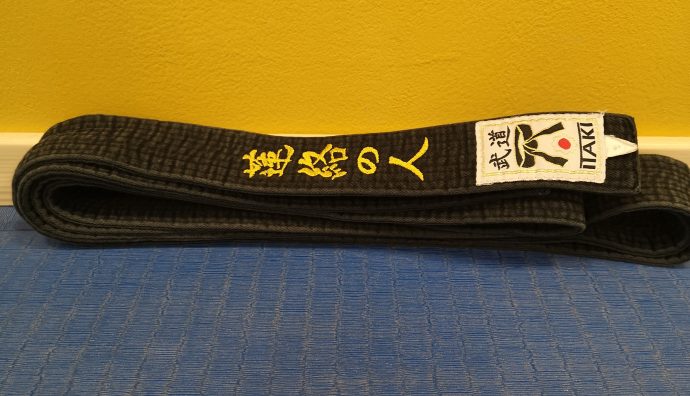Russia’s attack on Ukraine is a stone thrown into the still pond of Western conscience. In human history, there have always been wars and unfortunately they will not be lacking in the future. The war in Ukraine is “a little closer” than others, it has a more disruptive scope than others but we cannot forget that today, seventy states are involved in conflicts over nearly nine hundred scenarios.
War sucks. Everywhere. Always. Helpless people always pays the highest price of violence. Destruction leads to very long periods of enormous effort to return to the former well-being, which it was better not to lose. War is madness.
But that kind of facade pacifism is also disgusting, which is rightly indignant at what it sees on TV but which evaporates at the first queue at the post office, when someone dares to contradict our highest point of view.
The acceptance of duality, of otherness is necessary in order to build peace. If we’d like to reframe it in terms common to martial practice environments, duality can only be overcome just if it is not denied.
This means always and constantly researching the grammar of the relationship, which necessarily must include the grammar of conflict (understood for what it is: being faced with the clash between two incident trajectories).
The act of dialogue, in itself, can also reinforce the violence it tries to resolve. The exercise of a democratic mechanism, such as a referendum, can in itself mean absolutely nothing from the point of view of mediation between opposite positions.
History is full of formally flawless dialogues that actually have triggered more and more war. History did not stop at the Munich accords, history inevitably repeats itself.
Of course, the non-violent action, the testimony of unarmed resistance, had a strong impact in changing some traits of the history of humanity.
However, always and everywhere, building peace always had the clear target of denouncing injustice, of rejecting indifference, of overcoming the fear of exposing oneself and the risk of consequences and of having fundamental rights as outcomes for every human being.
So the categories of you and me, true and false, right and wrong, licit and illicit, morality and ethics, however uncomfortable, cannot be ignored.
Indeed, they cannot find a place outside the human being, thinking that the root of the issues is always in a generic systemic cloud: the “economy”, the “governments”, the “politics”… It is always “the fault” of something indistinct outside there.
On the other hand, if the goal is to build peace, that work can only start within the single person. In the daily effort of facing the clear frustration of not always having a definition of one’s “I” and the courage to go beyond the labels stuck to the “you”. Throwing a little light on personal shadows, which slip in front of the presence of truth. Understanding that collective habits form every individual to craft a personal and therefore social ethic, to which each one will provide a moral value. Personal and therefore social.
Could starting from work on ourselves, through the relationship with a fellow practitioner, change the fate of the wars in progress?
No.
It can restore an element of reality in the first place. Touching and being touched by people made of flesh and bones who move to perform a technique inside which everything of their emotional world and values pops up, makes you understand that the responsibility of the use of force and this is usually little or not trained at all.
That there is a fair use and a non-constructive one and that this distinction is learned on a mental level but is often understood only on a physical level, in which the “sanction” is a pain often self-inflicted by the incorrect application of a principle.
We can improve collectively if we accept the commitment to improve ourselves.
And we can learn that standing up with a smile after a technique is a choice that always is made by two parties.

